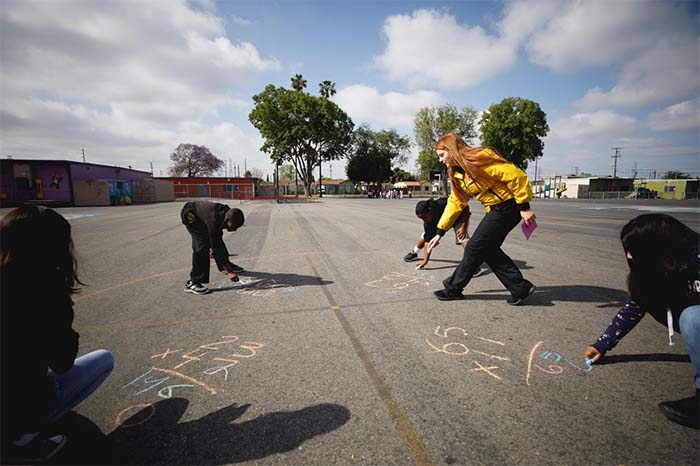
By Kellee Kemp
With many California schools remaining closed this fall for in-person instruction and unemployment only getting worse, expanding tried and true programs that help bridge the learning gap and support workforce development will be critical to our response to the pandemic.
Right now, members of Congress have an opportunity to do that and invest in our communities by passing the Cultivating Opportunity and Response to the Pandemic through Service Act (CORPS Act). The CORPs Act would expand important national service programs that serve communities and offer young people important professional development. Take for example AmeriCorps.
AmeriCorps is a network of national service programs that address critical community needs, including increasing academic achievement, mentoring youth, fighting poverty and sustaining national parks, among other things.
City Year, a program of AmeriCorps, places corps members in public schools throughout the country to provide much-needed support to students from systemically under-resourced communities. You may have seen them around your community wearing their distinct bright yellow jackets. The program also provides intense, well-rounded leadership development and professional growth for those graduating high school or just out of college and facing grim job prospects.
I never worked as hard as I did as a City Year AmeriCorps member. My service at 112th Street Elementary in the shadow of the Watts Towers and next to Nickerson Gardens public housing complex started early with classroom prep and ended late with meetings with other City Year members.
To this day, I credit my strong work ethic to this experience. At the same time that I learned how to be a professional, I learned how to support elementary school students and their families. The job training was rigorous: be on time, be prepared, have a pen and paper, listen, and ask questions. Those are the kind of soft skills young people entering the workforce need – especially during an economic downturn. I ended my City Year service in 2008 as the economy came crashing down.
My experience working with students, their families, and teachers, showed me what social-emotional support looks like. It can be hard for a student to focus on their learning when there are other things going on in their lives, like food insecurity or unstable housing. They require more support. They needed more resources, not punishment and suspension. Having a City Year member in the classroom allowed the teacher to keep teaching and students to get the individualized attention they needed. It’s a formula that works almost every time and it’s one we have the opportunity to invest in at a time of intense need.
As students are marching in the streets, raising important issues of over-policing and inequity in our schools and other public institutions, I can’t help but think of AmeriCorps as being a part of the solution. COVID-19 and lost instruction time will set students of color, in particular, back even further without intervention. In fact, NWEA, a research-based nonprofit, estimates that for elementary school students who do not receive or are not able to participate in effective distance learning during COVID-19 school closures, their learning loss could leave them a year behind if they return in the fall.
AmeriCorps programs like City Year address urgent local needs and fill gaps in social services. Congress must expand them and pass the CORPS Act as part of the COVID-19 response and recovery.
I grew up in South Los Angeles, so I lived at home during my AmeriCorps year. I remember two friends doing their service year with me had to share a bed in a bedroom in a crowded house to make it on the stipend AmeriCorps members receive. The CORPS Act would raise the stipend, something that hasn’t happened for many years, making it more accessible to young people who are on their own or without savings to fall back on. It is important to me that AmeriCorps members, caregivers, and service providers come from and understand the community in which they are serving.
Leaning into and expanding existing national service infrastructure through the CORPS Act will put national service within reach for more people and provide young adults training as they prepare for their careers. It’s a unique opportunity to invest in current and future AmeriCorps members, as well as the communities they serve.
Ask your members of Congress to pass the CORPS Act.





